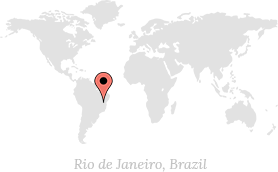Cordoba - a city of ancient past, where Jews, Muslims and Christians once worked side by side to build this massive beauty, the Mezquita Mosque Church. The Mezquita used mosques in Damascus and the al-aqsa mosque in Jerusalem as reference, but to be designed to be better. Originally a church for Roman church of San Vicente, it was then extended and rebuilt as a Mosque by Abd ar-Rahman I in the 6th century. It later went through two more renovations, which gave its prominent looks today. Fashionably fusion I would say.
Orange Courtyard
Upon arrival you will enter this serene, spacious courtyard filled with orange and cypress trees. The trees were only planted in the 16th centuries, and before then, it was just a quiet space for ablution before entering the mosque.Bell Tower
The bell tower was built in 951-52 as a minaret, but was later remodeled and heightened in the 16th century. Hence the bell tower is very unique kind of its own -- with architectural influences from mannerism and islamic art. (Very similar to the one I saw in Split, Croatia).The Interior
The interior of Mezquita Mosque-Cathedral is truly remarkable -- lavishly ornate with geometric patterns, and the arches are still a sight of architectural wonder today. The hall is divided into sections with 2-tier lined arches, in stripes of red and white brick stones. The arches are elevated in such a way to create airiness and openness. People could freely move about in the arcade without feeling that there are columns in place, giving it an extra sense of endlessness.
The Maksura & Mihrab
The Maksura area has an intricate movement of arches, forming a canopy of shades and lights. Each dome is decorated with star-like patterns and flower motifs. There is also a white marble slab sculpted in the shape of a shell and engravings from the Quran. The designs were largely inspired by Byzantine tradition. The skylights inundate the space with light and adds a mysterious yet majestic feel to the space.









![[US] Newport Mansions, Gilded Age and Vanderbilts (2) [US] Newport Mansions, Gilded Age and Vanderbilts (2)](https://blogger.googleusercontent.com/img/b/R29vZ2xl/AVvXsEgdLVBJVfOugvhyj0sFWVPv5Wk3XKrRK_Te_9cDQteObCZvGZWvOYiMcFLbacpGN6JNjkwiVhiEFWnUtyjnUp4yRjnZkUaMx3Qa90D0DcjaYgSmgaS-WQxM1LNOIP0MqQgvEiB7cJHQT1tW/s72-c/IMG_5365.jpg)

![[US] Newport Mansions, Gilded Age and Vanderbilts (1) [US] Newport Mansions, Gilded Age and Vanderbilts (1)](https://blogger.googleusercontent.com/img/b/R29vZ2xl/AVvXsEg38cwMN4jNE72LXybmV93WwFLD25QUgFLfdCO88c1Lnfa-Xp55epQFPXnHWLVP6cdnxUD7sr98_5LDW2s0BBF0N53y81gq4sYF1hOp3bv3We2QlQ9X4LvWn2cE1MhRGzexHpsM-FeWUJOa/s72-c/IMG_5349.jpg)
![[Michelin Restaurant 1*]: Esszimmer [Michelin Restaurant 1*]: Esszimmer](https://blogger.googleusercontent.com/img/b/R29vZ2xl/AVvXsEjx3TfFMYFpukgSZ1DPSMyILiJv8cUZw_371lGNHPMqlUccutFF-ThHaUEug_8rrAkHxnRMkH7e8VxJ2AXhBnCAdmpbtTnFEcKVefCeE_yIVhAzAsdAcvIEHMlgJm8ZD5375tFH6WSMIxwI/s72-c/IMG_5508.JPG)








